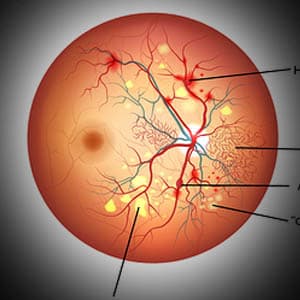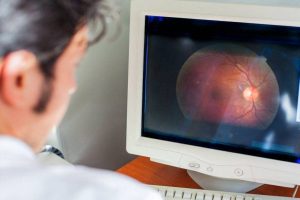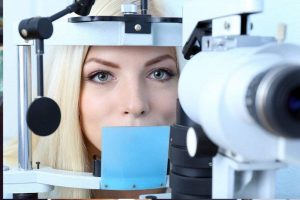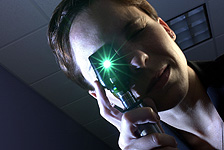A rapid spike in blood sugar levels after meals can cause your vision to become blurry — and may be an early sign of diabetes.
Blurry vision is often one of the earliest signs of diabetes.
Diabetes is a condition that prevents the body from using and storing sugar properly. As a result, excessive amounts of sugar remain in the bloodstream.
If uncontrolled, chronic elevated blood sugar levels can lead to blood vessel damage throughout the body, impacting different organs, including the eyes.
How does eating cause blurry vision?
A sudden spike in blood glucose can cause the lens of the eye to swell, as a result of excess movement of fluid entering the lens.
The lens inside the eye is responsible for fine-tuning and focusing light directly onto the retina for the production of clear, sharp vision. However, excess fluid in the lens can lead to changes in its shape and curvature, affecting the way light is reflected and resulting in blurry vision.
Once blood sugar levels are controlled, you may notice an improvement in your vision clarity, as the excess fluid drains out of the lens and the lens returns to its usual shape.
Normal blood sugar levels range between 70-130 mg/dL before meals, and less than 180 mg/dL for up to two hours after meals. Blood sugar levels above this can cause a sudden onset of temporary blurry vision.
Even if your blurry vision is temporary, it is important to have your eyes examined to rule out serious complications of elevated blood sugar levels.
SEE RELATED: 6 Ways Diabetes Affects Your Eyes
If you experience blurry vision after eating, schedule an eye exam with an eye doctor.
What is diabetic retinopathy?
If you have already been diagnosed with diabetes and you notice any changes in your vision, schedule an eye exam as soon as possible.
Blurry vision with a diagnosis of diabetes can be a sign of diabetic retinopathy, a serious form of retinal disease, and a common complication of diabetes that can lead to blindness.
Diabetic retinopathy affects 1 in 3 people with diabetes.
This sight-threatening condition develops when blood sugar levels remain elevated for long periods of time. This can result in retinal blood vessel damage and leakage of blood and fluid into the retina. When this occurs, the retina begins to swell, resulting in blurry or distorted vision.
What are other possible causes of temporary blurry vision?
Although experiencing blurry vision after eating is generally associated with a spike in blood sugar levels, temporary blurry vision can also be a symptom of:
- Dry eyes
- Conjunctivitis
- Eye strain
- Migraines
- Glaucoma
- Keratitis
- Cataracts
- Macular degeneration
- Certain medications
Controlling your blood sugar levels
While many people reach for a sweet treat or a carb-filled snack to increase their energy and help them get through their busy day, these food groups can be detrimental to your health.
These foods produce a rapid spike in blood sugar levels and usually cause a ‘sugar crash’ pretty soon after — often leaving you more tired and sluggish than before.
It is therefore important to limit your consumption of these food groups, especially if are trying to control your blood sugar levels:
- White bread
- Rice and pasta
- Potatoes
- Breakfast cereals
- Baked goods
- Candies
- Fruit juice
- Sugary sodas and beverages
When should I see an eye doctor?
If you notice any changes in your vision, it is always recommended to consult with your eye doctor — even if the changes are temporary. In some cases, they may signal the onset of a sight-threatening condition that requires prompt treatment.
LEARN MORE: Guide to Eye Conditions
If you experience blurry vision after eating, schedule an eye exam with an eye doctor.
Experiencing blurred vision after eating may be an early warning sign of diabetes.
If you have already been diagnosed with diabetes and you notice any changes in your vision, schedule an eye exam as soon as possible.








